Research Paper By Csilla-Maria Barta
(Life Coach, ROMANIA)
As defined in the ICA course, visualization is a powerful tool that can take our goal setting to the next level. When we visualize reaching our goal Continue…
Coach Training School
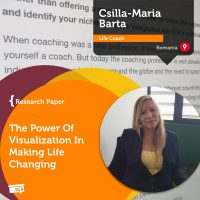
Research Paper By Csilla-Maria Barta
(Life Coach, ROMANIA)
As defined in the ICA course, visualization is a powerful tool that can take our goal setting to the next level. When we visualize reaching our goal Continue…
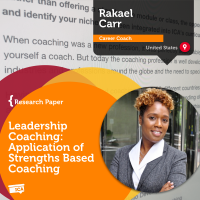
Research Paper By Rakael Carr
(Leadership/Financial Coach, UNITED STATES)
As a leader who manages other leaders on a daily basis, I was intrigued by the Gallup StrengthsFinder 2.0 (GSF). When I discovered Continue…
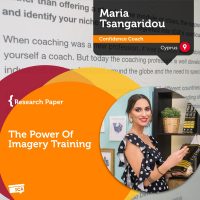
Research Paper By Maria Tsangaridou
(Confidence Coach, CYPRUS)
What is the difference between people that take action and people that don’t? It is so simple that is almost impossible to believe it. Continue…
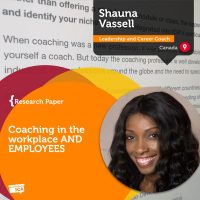
Research Paper By Shauna Vassell
(Leadership and Career Coach, CANADA)
There are a few key reasons most employees leave their careers, these include, but are not limited to: frustration from not being engaged, Continue…

Research Paper By Ju Yang
(Life Coach, SWITZERLAND)
In this rapidly changing world, people are increasingly mobile and connected. Multi-national companies increasingly dispatch Continue…
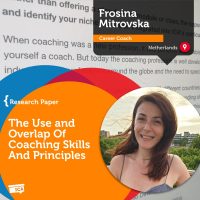
Research Paper By Frosina Mitrovska
(Personal Development Coach, NETHERLANDS)
I have spent significant time searching for the right topic for my research paper. I read through dozens of papers available on the forum Continue…
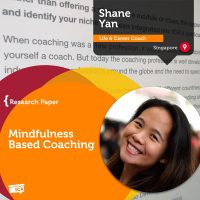
Research Paper By Shane Yan
(Life and Career Coach, SINGAPORE)
Coaching is at the intersection of the mental health type-of-help continuum (Cope, 2004). Coaching helps all types of individuals to get extrinsic Continue…
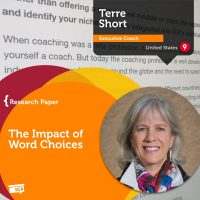
Research Paper By Terre Short
(Executive Coach, UNITED STATES)
The words we choose reflect our values and our intent. How often do we reflect on the impact our words have on others? Continue…
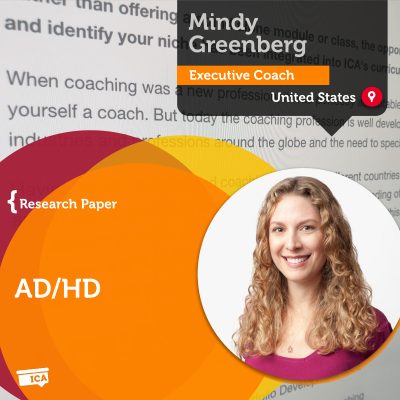
A Research Paper By Mindy Greenberg
Executive Coach, UNITED STATES
Coaching for people with ADHD frequently combines coaching and consulting techniques. Although most programs are only 6–8 sessions long, some connections last much longer. Self-awareness and AD/HD education are key components of coaching. The person must be able to relate how the illness works and how their brain functions to how its symptoms influence their ability to work. This fact can be done after two to three sessions and helps the coach, and the employee identifies priority areas. We’ll focus on organization, concentration, and communication as these are the three focus areas that are always there despite how the focus areas change.
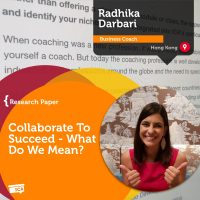
Research Paper By Radhika Darbari
(Transformational & Business Coach, HONG KONG)
Collaboration seems like a simple word, yet as it assumes a positive want of a minimum of two parties to work together to a mutually beneficial Continue…
Global: Clik Collective
Asia: Duo Tower
Postal: PO Box 3190 Mentone East,
Melbourne AUSTRALIA, 3194
Email: support@archive.coachcampus.com
Questions: Ask here